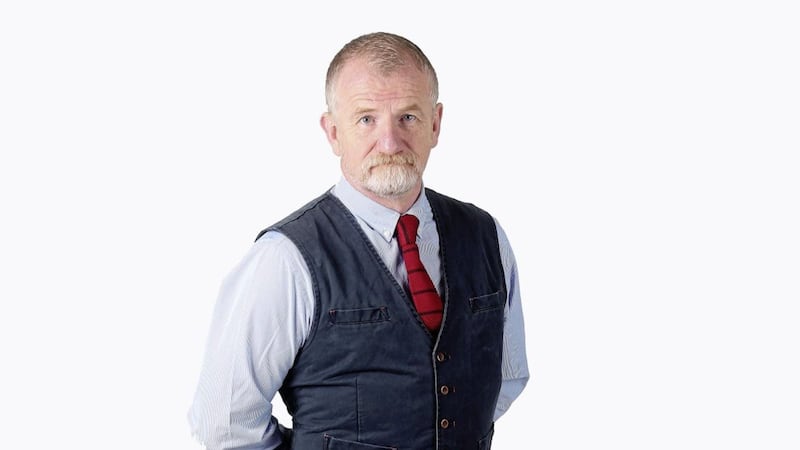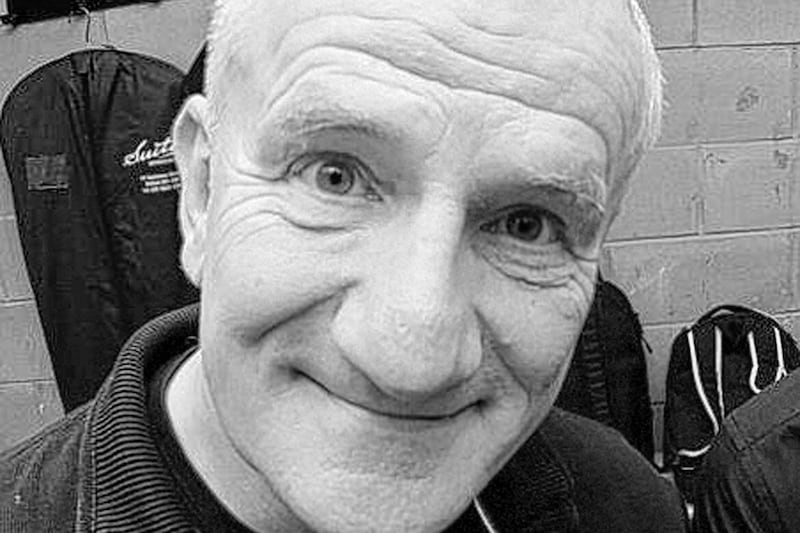WHILE the world’s greatest scientists work tirelessly to produce a vaccine for Covid-19, the peculiarities of how the disease presents among different patients is beginning to be revealed. Why one person exhibits no symptoms yet another is put in mortal danger is still something of a mystery, but one common denominator in those who fare worst has been identified: Body Mass Index (BMI).
BMI joins other factors such as a person’s age and pre-existing health conditions as being dangerous. Having a BMI of 40 or above identifies you as being "clinically vulnerable… at moderate risk", although I suspect that when the statistics are fully scrutinised it will emerge a high BMI score actually places you in the ‘at most risk’ category.
I’ve written before in this column about the dangers of obesity. On July 27 last year I stated, "… being obese leaves you vulnerable to a plethora of ailments including diabetes, cardiovascular disease, strokes… the list goes on". Who knew, a year later, that Covid-19 would be a new addition to that list?
It suddenly struck me that it had been years since I’d weighed myself. I hadn’t felt the need since being diagnosed as coeliac; I mean, surely my restricted diet would result in me losing weight?
Just to make sure, I dusted off the bathroom scales and was stunned when they read 14st 10lb. They had to be wrong; well, they hadn’t been used in years – they were obviously ‘off’. I got my wife to bring me up a full bag of sugar to help calibrate them; this done, I took my weight again… 14st 10lb.
Fair enough, that wasn’t too bad. After all, I’ve weighed over 16 stone in the past; admittedly, I was 19 and competing as a powerlifter.
My delusional rationalisation was shattered when I went online and entered my details into a BMI calculator, and, drum roll… I’m obese. My shock at this news wasn’t alleviated by the fact 79 per cent of men my age in Northern Ireland are overweight, obese or very obese.
While the rational part of my brain acknowledges the BMI calculator didn’t lie, I still didn’t think I look obese. When I hear the term obese, I’ve an image of a person being lifted out their bedroom window by crane. And that’s part of the problem, we’ve lost sight of what’s ‘normal’ with regard to weight.
A man who’d an even bigger shock over his weight was Prime Minister Boris Johnson, whose brush with death after contracting Covid finally brought home the dangers of being obese. His subsequent decision to ban advertising of fast food on television until after 9pm, the ending ‘buy one, get one free’ food deals and displaying calories on restaurant menus is a great start, but still far from enough.
The timing of Johnson’s announcement also seems to be at odds with the government’s ‘Eat Out to Help Out’ scheme, which gives discounts of up to £10 per head on food and soft drinks to diners eating in restaurants, Monday to Wednesday, during August. All very noble, and a great boost to the struggling hospitality industry, but surely the fact that fast-food restaurants such as McDonalds and KFC are taking part directly contradicts the anti-obesity message?
Another problem is that in our ‘woke’ world, even attempting to discuss obesity can lead to accusations of ‘fat shaming’. Not that ‘fat shaming’ doesn’t exist – too often, those who’d never dream of making a racist or sexist comment will casually joke about someone being overweight.
Yet, with the advent of coronavirus, our society must finally accept that obesity is no longer an issue of personal choice but a pressing public health concern. Its impact on the NHS is startling, with obesity linked to 30,000 deaths a year and 10,660 hospital admissions.
While government action on food labelling and the ending of advertising for unhealthy food will help, ultimately, we must accept personal responsibility for what we eat and how we care for our bodies by adopting a healthier lifestyle. If each one of us lost five pounds of weight, it is estimated the NHS would save £100 million but, every bit as important, we’d save ourselves untold pain and suffering, and possibly even save our own lives.
As we face into a probable second wave this autumn/winter of Covid-19, there’s never been a better time to act. Forget the fad diets; instead, make small changes by cutting out the rubbish and exercising. That’s what I intend doing, hopefully. No, definitely.








